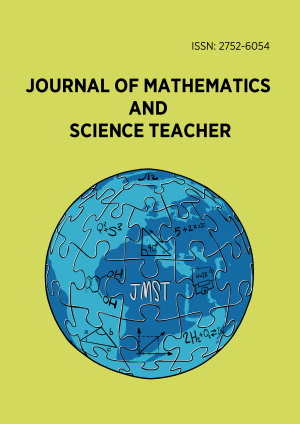Abstract
Self-directed learning (SDL) is an educational approach, where individuals take initiative and responsibility for their own learning, choosing what, how, and when to learn. It is assumed that SDL empowers students to tailor their educational experiences to personal interests and pace of learning, fostering autonomy and lifelong learning habits. This study aims to investigate on students’ attitudes toward SDL in mathematics at basic school level using quantitative research design (survey). The data were collected from students using SDL attitude scale. Total papulation of the survey consists of students from six publics and eight private schools, out of which students from two purposefully selected schools from each category for the sample. From the four school, 120 students were selected. Attitudes towards SDL in mathematics scale developed by the researchers were applied to collect the data and were analyzed using SPSS version26 based on the research questions. The study revealed that students had negative attitude toward self-management, self-monitoring and self-motivation as required for SDL in mathematics at basic level school. Moreover, there is no significant difference in student’s attitudes toward SDL in mathematics between public and private school, and between male and female students. The result shows that student’s attitude towards SDL changes positively as they participated in different teaching learning techniques applied for engaging them in learning such as KWL, jigsaw, reciprocal teaching, think-share-pair, and cooperative, and collaborative instruction. This implies that negative attitude towards a pedagogical approach does not mean that students pay less attention to the approach but changes when applied appropriately.
License
This is an open access article distributed under the Creative Commons Attribution License which permits unrestricted use, distribution, and reproduction in any medium, provided the original work is properly cited.
Article Type: Research Article
Journal of Mathematics and Science Teacher, Volume 4, Issue 3, 2024, Article No: em066
https://doi.org/10.29333/mathsciteacher/14616
Publication date: 01 Jul 2024
Online publication date: 13 May 2024
Article Views: 2952
Article Downloads: 3061
Open Access References How to cite this article
 Full Text (PDF)
Full Text (PDF)